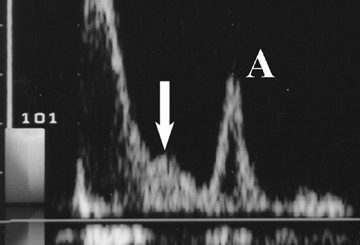Physiology Review -II
Hypophyseal portal system connects - which structures?
Hypophyseal portal system - connects the hypothalamus with the anterior pituitary.
What is the main function of Hypophyseal portal system?
Main function of Hypophyseal portal system
is to quickly transport and exchange hormones between the hypothalamus arcuate nucleus and anterior pituitary gland.
How many amino acids are there in Vasopressin?
Vasopressin- is an oligopeptide containing nine amino acids
Posterior pituitary secretes ------ hormones
Posterior pituitary secretes two important hormones: ADH
and Oxytocin
Where the ADH and Vasopressin are formed ?
ADH
and oxytocin. These hormones are formed in supraoptic and
paraventricular nuclei of hypothalamus and released into
posterior pituitary.
What is cleaved enzymatically to release ADH?
Prepropressophysin is cleaved enzymatically to release
ADH,
neurophysin II ,
glycoprotein molecules.
ADH,
neurophysin II ,
glycoprotein molecules.
What is the function of Neurophysin?
Neurophysin - serves as carrier protein
transport the hormone from the cell body to the axon terminals
transport the hormone from the cell body to the axon terminals
What are the Herring bodies?
Herring bodies
These are neurosecretory bodies or neurosecretory terminals.
Found in the posterior pituitary.
They represent the terminal end of the axons from the hypothalamus
Hormones are temporarily stored in these locations.
These are neurosecretory bodies or neurosecretory terminals.
Found in the posterior pituitary.
They represent the terminal end of the axons from the hypothalamus
Hormones are temporarily stored in these locations.
What is the carrier protein for oxytocin?
Neurophysin I is the carrier protein for oxytocin.
What is the carrier protein for vasopressin (ADH)?
Neurophysin II is a carrier protein for vasopressin (ADH)
What are the Two important
Stimuli for ADH?
Plasma osmolality and ECF volume.
Increased plasma osmolality above--------------- increases
ADH secretion
Increased plasma osmolality above 285 mOsm/kg increases ADH Secretion
ADH causes water retention and brings osmolality back to normal. ADH secretion
ADH causes water retention and brings osmolality back to normal. ADH secretion
What are the stimuli that Inhibit ADH Secretion?
Decreased plasma osmolality,
Increased ECF volume,
Decreased temperature,
Ethanol,
Cortisol,
ANP,
Thyroxine
α-adrenergic agonist
All of above factors decrease ADH secretion.
Increased ECF volume,
Decreased temperature,
Ethanol,
Cortisol,
ANP,
Thyroxine
α-adrenergic agonist
All of above factors decrease ADH secretion.
What is the biologic half-life of ADH?
Biologic half-life of ADH is about 18 min
ADH increases permeability of the tubular cells by acting on which receptors?
V2 receptors
Which Aquaporins found in Brain?
Kidney - Aquaporins 1, 2 and 3
Brain - Aquaporin 4
Salivary and Lacrimal glands and respiratory tract- Aquaporin 5
Human leucocytes -Aquaporin 9
Brain - Aquaporin 4
Salivary and Lacrimal glands and respiratory tract- Aquaporin 5
Human leucocytes -Aquaporin 9
Diabetes Insipidus
There is deficiency of ADH
polyuria and polydipsia.
Polyuria occurs due to ADH deficiency that promotes water diuresis. Polydipsia occurs secondary to dehydration caused by polyuria.
polyuria and polydipsia.
Polyuria occurs due to ADH deficiency that promotes water diuresis. Polydipsia occurs secondary to dehydration caused by polyuria.
What is the difference in osmolality of the urine in Diabetes Insipidus and Diabetes mellitus?
Diabetes Insipidus -Urine osmolality is <300 mOsm/L,
Diabetes mellitus- Urine is hyperosmolal due to loss of glucose in urine [>1200 mOsm/L]
Diabetes mellitus- Urine is hyperosmolal due to loss of glucose in urine [>1200 mOsm/L]
What are the Types of Diabetes Insipidus?
Two types of DI:
Nephrogenic Diabetes Insipidus- kidneys fail to respond to ADH
Neurogenic Diabetes Insipidus- deficiency of ADH secretion .
Neurogenic DI is also called central DI
Nephrogenic Diabetes Insipidus- kidneys fail to respond to ADH
Neurogenic Diabetes Insipidus- deficiency of ADH secretion .
Neurogenic DI is also called central DI
What are the drugs causing Nephrogenic DI -
Demeclocycline,
Rifampicin,
Aminoglycoside,
Lithium,
Cisplantin
Amphotericin B.
Rifampicin,
Aminoglycoside,
Lithium,
Cisplantin
Amphotericin B.
Genetic disorders that cause Nephrogenic DI -
X-linked recessive defect -V2 receptor gene is deficient
Autosomal defect - aquaporin gene is deficient
What is the Drug of choice for nephrogenic diabetes insipidus?
The first line of treatment is hydrochlorothiazide and amiloride
What is the Drug of choice for Central diabetes insipidus?
Vasopressin analogs such as Desmopressin.
What is SIADH (syndrome of inappropriate ADH secretion)?
ADH secretion is inappropriately
high relative to serum osmolality.
Drugs That Can cause SIADH?
Drugs such as -
desmopressin, chlorpropamide, high dose of oxytocin, vincrisitine, phenothiazine, carbamazepine
desmopressin, chlorpropamide, high dose of oxytocin, vincrisitine, phenothiazine, carbamazepine
What is vasopressin escape?
ADH is counteracted by a process called vasopressin escape that limits the degree of hyponatremia.
This escape phenomenon occurs due to down regulation of aquaporins production in collecting duct
Urine output increases despite high ADH levels in plasma
This escape phenomenon occurs due to down regulation of aquaporins production in collecting duct
Urine output increases despite high ADH levels in plasma
How many amino acids are present in OXYTOCIN?
Oxytocin is an oligopeptide containing nine amino acids.
Oxytocin secretion occurs in response to which
physiological stimuli?
Suckling - at the time of breastfeeding,
Cervical dilatation - at the time of parturition
Cervical dilatation - at the time of parturition
Which Reflexes are mediated by OXYTOCIN?
Oxytocin mediates two physiological reflexes:
1. milk ejection reflex
2. parturition reflex.
1. milk ejection reflex
2. parturition reflex.
Which infusion is given to facilitate the progress of
labor?
OXYTOCIN INFUSION
Which injection is routinely injected immediately following delivery
of placenta, to prevent excessive postpartum hemorrhage?
OXYTOCON INJECTION
Mechanism-
uterus contracts severely in response to oxytocic and bleeding vessels are compressed in the contracted uterus that prevents bleeding.
Mechanism-
uterus contracts severely in response to oxytocic and bleeding vessels are compressed in the contracted uterus that prevents bleeding.





